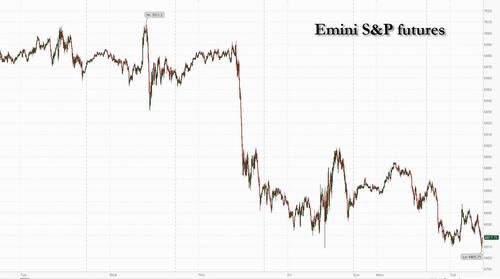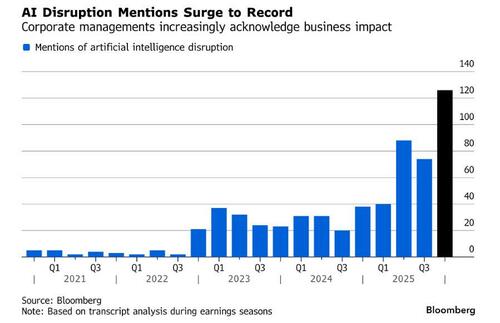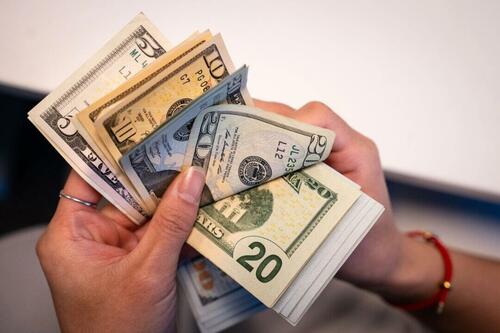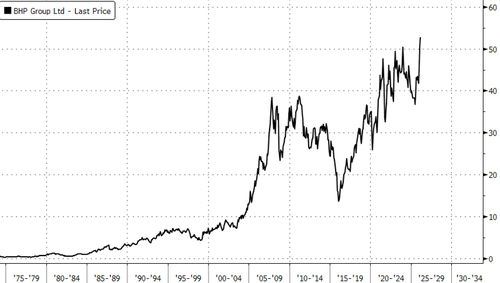The transcript from this week’s, MiB: Douglas and Heather Boneparth, Money Together, is below.
You can stream and download our full conversation, including any podcast extras, on Apple Podcasts, Spotify, YouTube, and Bloomberg. All of our earlier podcasts on your favorite pod hosts can be found here.
~~~
Interview with Doug Boneparth and Heather Boneparth Podcast Transcript
[00:00:02] Announcer: Bloomberg Audio Studios, podcasts, radio News. This is Masters in Business with Barry Ritholtz on Bloomberg Radio.
[00:00:16] Barry Ritholtz: This week on the podcast I have an extra special guest. Guest, plural Heather and Doug Boneparth. I’ve known Doug for, I don’t know, 10 years. Yeah, maybe something like that. And Heather, for a couple of years when I went to their book party and dragged my brother-in-law, ’cause he was in the neighborhood, he was there, we sat and had a conversation and I’m like, yeah, a book about couples money. This is gonna be, you know, it is what it is. And as we were chatting, I’m like, son of a gun. This is a really interesting topic for the podcast. I have to have them on. And I thought this conversation was absolutely fascinating. Not just about power dynamics within a relationship, but everything from budgeting, prenup agreements, inheritance communication. Really. This was really fascinating. I found it super interesting. And I think you will also, with no further ado, my conversation with Heather and Doug Boneparth. Thanks for
[00:01:16] Doug Boneparth: Having us. Thanks for having us, Barry.
[00:01:18] Barry Ritholtz: So I’ve been excited to have you come talk about this since your book party. ‘Cause it is not the usual financial book. It is a lot of stories. You guys have interviewed hundreds of couples. But before we get to the book, I wanna just dive a little bit into your backgrounds. Heather, you went to law school at, at my alma mater, Benjamin and Cardozo School of Law in New York City. I didn’t
[00:01:45] Heather Boneparth: Know
[00:01:45] Barry Ritholtz: That. Yes, we both went there. Oh, I love that. Not, not at the same time. And Doug, you got your MBA from NYU Stern, very different career paths. Tell us what, what were the original plans?
[00:01:57] Heather Boneparth: Well, the original plan for a, for an elder millennial like myself, I think got thrown out the window, you know, during the Great Recession in 2008. So I was in law school when that happened. Ooh. Yeah. And so I graduated in a very different labor environment than the one I entered school in. So my expectations were not met. I mean, that’s an understatement. So, you know, I, I ended up in the world of commercial insurance, which shouldn’t surprise you that that was not exactly what I went to school for.
[00:02:25] Barry Ritholtz: I thought you loved commercial insurance.
[00:02:27] Heather Boneparth: You know what, I, I, I ended up having, you know, having a fine career in that for over 13 years. And I, I really like learning a lot about risk, which we write a lot about in the book. But that was certainly not the path and the reason that I went there and, and so much of my earliest money stories as a young adult were really wrapped up in the shame that came from graduating law school with six figures of student loan debt to a labor environment that was not welcoming to, to young lawyers.
[00:02:54] Barry Ritholtz: And, and the studies show you graduate into a recession, your lifetime earnings are actually lower than people who graduate into a boom, which is really interesting sort of thing. Doug, MBA from NYU Stern, what was the plan?
[00:03:08] Doug Boneparth: Yeah. So by the time I made it to grad school, I was still focused on building my own wealth management firm and building a book of business. I grew up the son of a certified financial planner. So I’ve done nothing else in my professional life. That
[00:03:19] Barry Ritholtz: Was always the plan from start
[00:03:21] Doug Boneparth: Was always the plan. That’s what I was doing during college. Undergraduate, went to New York City as a love story, wanted to be with Heather. And that was October, literally October, 2008. I’m getting off a plane. Nothing was really
[00:03:33] Barry Ritholtz: Going
[00:03:33] Doug Boneparth: On. Nothing was happening. Nice and chill, watching it all.
[00:03:37] Heather Boneparth: He moved to New York City with a duffle bag and a dream. Absolutely. Like straight out of a movie.
[00:03:40] Doug Boneparth: I shipped up three boxes and went to Sleepy’s on fifth to get a bed that day. Random roommate on Craigslist.
[00:03:45] Barry Ritholtz: My, my wife and I watched a whole bunch of rom-coms over the holidays. And this is like, this is setup
[00:03:53] Doug Boneparth: For one of them. We’re
[00:03:54] Barry Ritholtz: We’re leaving out, you two meet as freshmen at the University of Florida. So you guys have been together since freshman year, is that right?
[00:04:02] Doug Boneparth: Yeah, since 1918. 19.
[00:04:04] Heather Boneparth: Since 1819.
[00:04:05] Doug Boneparth: 1819. Since 1819.
[00:04:06] Barry Ritholtz: So it’s a hundred, 130 years
[00:04:08] Heather Boneparth: Going on, you know, and, and, and I think we make this point too, then, and, and we’re, we’re transparent about this. We’re not perfect. I mean, Doug and I, I would say lived the lifecycle of some marriages before even getting married. Right. I mean, we had to figure out what it would look like to, to be adults and grow up together or apart. I mean, they were a couple years there where we didn’t know whether we had a future together. When I went to New York City, he moved home to work for his father and, and and where’s home?
[00:04:36] Doug Boneparth: South Florida. Boca Raton.
[00:04:38] Barry Ritholtz: Okay. Oh my god. Boca Raton. Wow. So, so wait, so you meet when you’re 18 or 19 years old? Yeah. Just about when did you first start talking about money with each other? Was that way off in the future or was that an early conversation?
[00:04:54] Heather Boneparth: It was not a conversation for a long time. I don’t think we really started talking about money together until we came back together and said like, it was really after law school that we took a hard look at, at each other and where we had been and where we were. And we said, we wanna give this a real shot. We wanna start our adult lives
[00:05:11] Doug Boneparth: Together. Our adult shot together. Yeah. But we were observing money behaviors for our entire time dating throughout. That’s right. Undergraduate. And probably me observing Heather more than Heather observing me. You’re an only child product of divorce. Her story is shared in detail in the book. So I was, as the son of a financial advisor and working in an advisory practice, probably getting a lot more observation points on Heather than her on me. But to Heather’s point, when we ultimately had decisions, joint financial decisions to make, such as sharing rent, the typical stuff that couples come together for, I would say because we had those observation points around each other, and obviously being together for so long before we needed to make decisions, it played in our favor and helped us navigate it. Although I don’t think you or I anticipated multiple six figures of graduate student loan debt. Right. As this big boulder. We had to figure out how to move in our financial puzzle.
[00:06:09] Heather Boneparth: And I don’t think that he could have anticipated the weight that the debt would have on me. And, you know, it, it is so interesting and, and, and we interviewed a couple for the book, and I would say the same for Doug too. Like, there’s people who view debt, especially like debt from higher education as you know, this is an investment in myself. It’s an opportunity. It was a necessary evil to get where I need to go. That was not the message that I was telling myself. My debt was not a, some outside, you know, hurt financial hurdle. My debt was me. It stood for everything that I wasn’t really,
[00:06:42] Barry Ritholtz: I’m so shocked to hear. I mean, having read the book, and I know you not as much as I know Doug, but I know you, I’m, I’m really kind of surprised at that. I can compartmentalize things like that. And just like, I remember when we were young and broke and my wife used to sit there Sunday nights writing checks out and she’s like, we don’t have enough money to send all seven checks. I’m like, that’s easy. Send the check, don’t sign it to whichever one. And they’ll bounce it back and, you know, try again. Just remember which one you could do. You could rotate through seven and by then hopefully we’ll have a little more money. She was aghast at that. I could not possibly care less. It,
[00:07:23] Heather Boneparth: It, it’s so interesting. And there, there were elements of it that we were totally okay with. Like I remember we first moved in together on the upper West Side. We would go to Fairway to the grocery store and we had like our set of like, of of very affordable meats that we could get every week. Yeah. Every week we ate the same things and I packed us lunch every single day. Yeah. To go to work. And I was completely okay with that. But anytime there was a major financial decision we had to make, or anytime there was even like the smallest hiccup with my student loan debt repayment. Oh, oh. I mean, I would, it would send me into these like deep emotional spirals. And they were not just about the money. It was like, I am worthless. I’m never going to get anywhere in my career. I can’t believe I did this to myself. Like it really ran so deep I was punishing myself.
[00:08:09] Barry Ritholtz: So there’s a line in the book that I, I wanna bring up here. ‘Cause it very much relates to what you’re saying. Quote, most money conflicts aren’t really about money. Explain what, what are, what are they actually about? Yeah,
[00:08:24] Doug Boneparth: It’s, so we have a whole first section of this book that touches on our beginnings, right? Who we are in our relationship with. Money starts long before you meet your partner. It is the meals you shared with your family where you went on vacation. Maybe it’s some trauma you experienced or the socioeconomic status both from the side of being privileged all the way to food insecurity or housing insecurity. Our cultures, our religion. It is almost endless the amount of touch points in our past that shaped the way we feel about money that we bring into our relationships that we bring into our adulthood. So when we are having an emotional response to money, it’s usually not the number on the screen or the check you’re writing and the bill you can or cannot pay. It is something you’re fixing it to that you’ve experienced. And if you can get to the bottom of that, if you can create that relationship, you’re gonna be that much better off in evolving and having a better financial relationship. Because now you gotta bring all that to your partner who also has all of that in their own unique way. And I think that right there shows you how difficult this particular topic is around love and money.
[00:09:38] Barry Ritholtz: So when you guys sit down with a couple to talk about money and financial planning, what’s the biggest mistake you see? What do most couples, what’s the biggest error that that comes up? Time. And again,
[00:09:50] Heather Boneparth: They’re not communicating, they’re not communicating either substantively about these issues, about, they’re not going deep enough to understand why they feel the way they feel in a very surface level, very surface level. And they’re getting caught in these surface level disagreements, right? It’s, it’s these behaviors that happen over and over again because we’re not taking the time to dig deeper to understand what’s actually going on, like what Doug just said. Because that’s how you build empathy for one another. You may not agree with the way your partner approaches it, but if you don’t even understand why they feel the way they feel, you’re never going to get past those squabbles over spending or about what you’re saving for and being misaligned on your goals unless you’re taking that extra step to really understand empathy builds that bridge in people
[00:10:35] Barry Ritholtz: Communication. Doug, you you wanna say something else? Yeah, I
[00:10:37] Doug Boneparth: Like putting examples and stories behind that. You have someone who does the shopping in a household, they come home with an extra bag of rice or we already have that item. The other partner gets very upset. We already have four chicken broths and you bought two more. Maybe, you know, is it that they spent the money on two more boxes of chicken broth or is it because there were some issues with food security growing up and that is plaguing their identity around money. So they fight about the chicken broth.
[00:11:05] Heather Boneparth: Not we did interview. Yeah, yeah. We interviewed someone who came from, and it’s, I think it’s a great example, came from extreme adverse childhood experiences. They experienced homelessness, abuse,
[00:11:17] Barry Ritholtz: Living in the car, I remember.
[00:11:18] Heather Boneparth: Yeah. Living in the car. And one of the ways that played out in his young adult life was always overstocking his fridge and always overstocking that his pantry, because you never wanted to feel the safety, you feel safety in being over con over consumptive as an adult. So just one example of how that shows up. I, I’m
[00:11:37] Barry Ritholtz: Not a prepper, but we had plenty of paper towels and toilet paper heading into the pandemic, which you write about. One of the things that shocked me in the book was the whole debate about joint accounts, separate accounts, hybrid. I mean, to me, this is partnership blasphemy. I had to ask my wife this morning, Hey, when did we set up our joint account? And she’s like, don’t you remember we were leaving for our honeymoon. We got married on a, on a Sunday afternoon, we got home a Sunday and knew we got home at like six, seven o’clock. We signed all the checks, gave it to our neighbor to deposit. That was our opening deposit in our joint account. Anybody I know that doesn’t have a, everybody I know who’s married disproportionately has joint accounts if they’re still married. And we went over the other day talking about this over all the couples we know that are divorced, how many of them did not have joint accounts and a disproportionate number that we knew about because she’s usually friends with the wife. I’m friends with the husband. Sure. Sometimes we, after divorce, you inherit one side or the other. I don’t choose. I don’t, I don’t understand how you could get married and not pull your assets, pull the financial responsibility or at least the discussions about what are we spending, how much is a vacation, what are we spending on shoes or watches or whatever. And I I I’m genuinely shocked. That’s a debate. What did you guys find?
[00:13:15] Heather Boneparth: I would start with the caveat that I think that there are legitimate reasons why people are apprehensive to join and pool all of their finances together. If it’s a second marriage or if somebody came from maybe an abusive family, like there could be legitimate reasons why
[00:13:29] Barry Ritholtz: Or come from a lot of money
[00:13:30] Heather Boneparth: Or come from a lot of money, which, you know, there’s,
[00:13:32] Barry Ritholtz: Well, they may have a separate trust or a separate account, but at the very least isn’t there a households account you’re paying the mortgage and rent, you’re paying for vacations, clothes, food. Oh, we’ve, its entertainment. We’ve
[00:13:43] Heather Boneparth: Seen it all. We
[00:13:44] Doug Boneparth: Completely agree. Completely agree with you on this. That having a joint account puts you in the best position to work as a team.
[00:13:50] Barry Ritholtz: You’re partners. Right? Exactly. Yeah.
[00:13:52] Heather Boneparth: Communication, again, playing team again. And also just the transparency, right. Of of being able to see what comes in and out and save for joint goals together. I mean, we talk about this, there’s of course there might be reasons why you don’t. Yeah. But there’s no question that you’re gonna, all the data work, it’s gonna work better
[00:14:07] Doug Boneparth: At the all the data points to that your relationship will work out better in general and financially. If you are taking a team approach to your finances, imagine, you know, playing the same game on two separate fields. That’s insane. Right? Right. What are you doing here? But there is one thing, regardless of how you set it up, and I think in practice we always encourage clients to do what works for them. But the thing you need to have is transparency. You wanna have your own individual account, you wanna have your own individual account. You wanna chop up the expenses. By the way, that scales horribly. Right? When you start bringing family into it, having
[00:14:43] Barry Ritholtz: Children, yeah. Whatcha
[00:14:44] Doug Boneparth: Gonna do pay 25% of the formula because they make 25% of the household income for the baby. This isn’t, this is crazy stuff, right? But if you have transparency and everyone has access to each other’s bank accounts and you’re doing these reviews and everyone knows where everything is, sure, I could see pathways for that working. But again, I don’t, and we would all agree this is not the most effective way to manage a household financial situation. And what
[00:15:09] Heather Boneparth: We found in speaking to so many relationship coaches and couples, therapists and psychologists, is that this, this money, this money topic actually translates to couples therapy as well. The idea of yours, mine and ours. No one is saying that you need to come together as some like homogenous blob. And now you’re just one person and all your assets are pulled goals, all
[00:15:29] Doug Boneparth: Your goals are the same.
[00:15:30] Heather Boneparth: Yeah. Pulled
[00:15:31] Doug Boneparth: No, you are supposed to maintain your individuality and have individual goals, whatever that may mean. If that could mean individual financial goals, we take no issue with that. Yours, mine, and ours. It’s, it’s the same in couple’s work.
[00:15:43] Barry Ritholtz: Coming up, we continue our conversation with Heather and Doug Boneparth, authors of the book Money Together. I’m Barry Ritholtz, you’re listening to Masters in Business on Bloomberg Radio. I am Barry Ritholtz. You are listening to Masters in Business on Bloomberg Radio. My guest today are Heather and Doug Boneparth. They are the authors of the book, Money Together, How to Find Fairness in Your Relationship and Become an Unstoppable Financial Team. So communication and transparency, pretty straightforward. And with a little hindsight obvious, what was the biggest surprise? What did couples say to you where you kind of looked across each other and said, what the hell is that about? Like, what shocked you?
[00:16:47] Doug Boneparth: Heather would always say, and I would agree with her, often the things that shocked us were the things that were not being said. For example, you would ask a very forward question, or rather you would pick up, I would do a lot of this over Zoom. You’d pick up body language. You would see one partner zoning out or spacing out or not engaging. So those were all tells that there was something greater going on. On that particular topic.
[00:17:14] Barry Ritholtz: What sort, what sort of topics engender that sort of response? Is it the full spectrum or were there things that were like, I could imagine credit card debt and reckless spending being an issue. That’s obvious. What what surprised you?
[00:17:32] Heather Boneparth: You know, where I saw this come up and I, and I, it, it always caused me to kind of tilt my head and and wanna know more was when you would see one spouse, it was typically a, a man who was running his own business or an entrepreneur. And it really felt like it was, was his show and, and the risks that he were to be taking, and this happened more than once, felt like they really did not consider the family as a whole. It felt very, very much like, well this is my plan and if it doesn’t work, burn it all to the ground. And you could see his wife sitting next to him aghast, like aghast, but silently aghast. Like you could see that it was like, she’s like, you’re right. Like this is, this is his ride. And, and we are all, I would say along with it, but being held hostage by it.
[00:18:20] Heather Boneparth: Wow. And that, that was where we saw this, the silence and the body language play in. And I’ve set Doug, like we interviewed a a couple folks who like had been in bankruptcy for business ideas of theirs. And that’s fine. But like, just the, just the, the lack of accountability to the rest, to his partner and to his children and just saying, well, and I’ll try again and I’ll, and I’ll keep trying again. Like, what kind of rollercoaster are you bringing your family on if she doesn’t feel like she has a voice to even be part of this discussion that we’re having right
[00:18:49] Barry Ritholtz: Now. Seeing someone without agency. Yeah. Is not a good thing to look at. It doesn’t look good. And you can see it if you’re asking the right questions or you’re a financial professional and you’re looking at that situation. Yeah. It’s, it’s pretty ugly. And I have to ask about this since we were talking earlier about dividing some household work and, and responsibility. How did you do this work together? How did each of you contribute? You work together as writing together a different experience?
[00:19:21] Heather Boneparth: It’s a journey. Yeah, it was a journey, Barry. This was something. So I, writing is a huge part of my life. I was a journalism major in undergrad. I, there was a very long time of my life where I had only hoped to get back to a moment like this where I could use my words and my storytelling ability and my, and my question asking ability, which was honed three years as a lawyer to write something like this, to find a way to help people through my writing. So the, we always kind of knew that I would be taking the lead when it came to writing. Yeah. The words on the page of this book. But Doug and I sat together on 90% of these interviews. Of the couples. Yeah. Many of the experts. And the way that we would do this is we’d have like a big picture meeting.
[00:20:02] Heather Boneparth: We would talk through different chapters. Eventually they all fell into the five sections of the book. And then I, I would draft it and I would put it to him. And I would say, does this one make sense from a, from a practitioner standpoint? Like, are we covering enough of the basis from a practitioner standpoint and two from a, from a male lens, we wanted to write a book. I think one of the greatest challenges in writing this book was not us working together. We’ve worked together in many different ways over the course of our careers, but how do we write something that resonates with all genders?
[00:20:34] Barry Ritholtz: So I know Doug’s voice, which is kind of snarky and funny. And I got the sense that you did most of the writing in this, at least in terms of, I don’t wanna say feminine, feminine, but it’s a gentle se sensitive, the right word. Like, like
[00:20:53] Heather Boneparth: Empathetic,
[00:20:53] Barry Ritholtz: Empathetic tone. Yeah. Which I don’t get from Doug’s tweets. No, but here’s the, the more interesting question. When you guys went through the whole process of drafting and editing and writing the book, did it change at all how you guys talked about money with each other? How you thought about it? Yes. Like reading the book might affect some people. How did writing the book affect you two as a married couple?
[00:21:18] Heather Boneparth: Oh my goodness. In
[00:21:19] Doug Boneparth: Profound ways.
[00:21:20] Heather Boneparth: In profound ways. In so many ways. I mean, I, I will tell you that some of the couples we interviewed completely changed my perspective on what it means to have enough. Yeah.
[00:21:31] Barry Ritholtz: Really.
[00:21:32] Heather Boneparth: And, and, and that it was, these were perspective shifting relationships that we’ve made with some of these folks.
[00:21:39] Barry Ritholtz: Give, give us an example.
[00:21:41] Heather Boneparth: Well, on one hand we interviewed many couples who objectively on paper live a very different socioeconomic life than we do. They live in a, in a lower cost of living area. They make it work on a lot less. And they, they have love, they have family, a roof over their head. Have they have a roof over their head? And they have enough. We asked every couple that we interviewed, do you have enough? And the answers said so much. And they gave us such perspective. So like there are couples that on paper are, are, are living a very different life. Sure. Than we are, you know, objectively of less privilege. And they just were so happy and content and proud of where they were. And I think sometimes when you’re an ambitious, Doug and I are both,
[00:22:24] Doug Boneparth: We’ll flip it, we’ll flip it around, right? We interviewed a lot of people who are highly successful entrepreneurial building their second, maybe third business. And we asked that same question, don’t have enough. It was never enough.
[00:22:36] Heather Boneparth: Brought them to tears
[00:22:37] Barry Ritholtz: Really
[00:22:38] Doug Boneparth: So serious when, when they realized like, Hey, we just reflected on all this amazing stuff you did. You know, you’re telling us you, you don’t have enough. And then kind of that moment, that pause where they realized like, oh my God, what is my enough? Or they look at, I mean, it ran deep sometimes the, the family, they didn’t start the second child. They maybe didn’t have the time. They didn’t get with their spouse to enjoy something in their life.
[00:23:01] Heather Boneparth: I think that maybe one of the greatest things we learned. And it, and it made its way into the book, not only through those conversations, but we had conversations with folks who were dealing with life threatening sickness or terminal illness. And we realized that time is the greatest currency that we have. Of course. And I know we can say it, but to really believe it and feel it. And I think that we embody that now in our life.
[00:23:25] Barry Ritholtz: Let, let me float a theory at you about enough. I think if you’re in middle class or upper middle class or lower middle class, the range is pretty tight. Like upper middle class is a lawyer, an accountant making a couple hundred grand bottom of that group is somebody in civil service making 40, 50, 60 grand. That’s the range. Once you’re in the top 10, 1.1%, it’s from a million a year to billions. And no matter how much money you have, there’s always a tier above it that seems to be, gee, you know, if I just made another million dollars a year, I could fly private move from
[00:24:06] Heather Boneparth: Succession. The fi. Didn’t Tom say that in Succession?
[00:24:09] Barry Ritholtz: Yeah. Tom says it to Greg. Oh, 5 million, you know. Yeah. It’s, you know, the worst kind of rich there is not, not enough to retire. Right. You know, too much to do nothing, you know, whatever. Too know
[00:24:21] Doug Boneparth: Too much to do. Nothing. Not enough to retire.
[00:24:23] Doug Boneparth: Yeah. You know, I love that show. But going back to what this process did for us in our relationship, you have thought, and, and I will chime in and say, for me personally and selfishly the amount of work that needed to be put into myself in order to, because this, this book is a product of major life decisions Heather and I made three and a half years ago to leave 13 years of being a corporate attorney, which was the very reason that’s stability, the, the benefits, the salary. That was the stability I needed to grow and be the entrepreneur. And I, I
[00:25:07] Barry Ritholtz: Have, I have to interrupt you. I have the exact same experience. My wife was a teacher for 35 years. The firm launched in 2013. I didn’t feel like it was a risk, but at the very least, hey, healthcare is covered. Yep. All these things you don’t have to worry about. And I had the conversation with my wife, are you okay, first of all, changing careers from a lawyer to finance, but then, hey, I know I’m making a decent salary, but I want to go do this on my own. Yeah. I think there’s an opportunity here. And she was like, go for it.
[00:25:37] Doug Boneparth: Not to spoil the book, but I got very comfortable after having reached certain goals in building the firm, that I probably would’ve kept feeling comfortable and having Heather continue being an attorney at her job forever
[00:25:56] Heather Boneparth: Burying the lead here. Yes. That in that moment in time was also the time that we had two very small children. COVID hit. COVID hit when we had an 11 month old and a 4-year-old. Wow. At
[00:26:06] Barry Ritholtz: Home. So you’re stuck at home. That’s time.
[00:26:08] Heather Boneparth: That’s tough. Yep. I’m working a corporate job, corporate legal job in a GC’s office of a Fortune 100 company from home taking care of our two children and also moonlighting as Doug’s business associate for the firm, which I’ve basically helped to build from the ground up, you know? Yeah.
[00:26:21] Doug Boneparth: There’s never been a day that I haven’t been doing that she wasn’t my co-pilot helping me make critical decisions. I was, she’s working three jobs
[00:26:27] Heather Boneparth: Here, but I was working three jobs and I was being stretched so thin that I felt like I had completely lost myself in trying to stay above water. And there was a moment where we said, you know, we formed this whole cruise ship of our life around servicing the risk that you were taking in starting this firm. But when is it about me again?
[00:26:48] Barry Ritholtz: So let’s, let’s talk a little bit about. Sure. The stories from your marriage, and I have to ask, it’s all narrative, no spreadsheets. Why did you decide to tell this story in a narrative format?
[00:27:02] Doug Boneparth: There’s been too, there’s enough books on budgeting and spreadsheets. Tons. Yeah. Enough people have tried to do it. And I, and also,
[00:27:09] Heather Boneparth: Also also a perfect budget’s not gonna solve much for the dynamics of your relationship with someone.
[00:27:16] Doug Boneparth: That’s right. There’s a reason that folks have not read this book before and it’s because doing this stuff is emotional work. It’s personal work. It requires understanding stories and hearing things you may not want to hear. That goes way, way, way deeper than the numbers. So we wanted to do something that we felt like would really uncover the things that weren’t being said. Like there were so many invisible moments that I, I hope we made visible in this book.
[00:27:44] Barry Ritholtz: So you bring a lot of therapists and psychologists. Yes. And, and couples counselors into the book. The question that was running through my head as I was going through that is, hey, at what point should any couple get professional help? Be it working with a financial planner or go into a couple’s therapy or, or a shrink to help them work out their emotional issues?
[00:28:09] Doug Boneparth: Yeah. So, you know, probably self-serving statement here all along on people using professionals to help them find the time and the space and the agency to talk about things that need to be discussed. But, you know, there’s never a bad time. I think if you can first recognize that you’re going to need help finding the space, finding the time, right. Self-starting is, for me personally, one of the hardest things that I struggle with. So I’m always open to finding people who can help me do that. But I think in practically speaking, if you are both wanting to improve and not being able to get past step one, like every conversation you’re having, Hey, let’s, let’s sit down and have our, you know, money date, our conversation and every time you’ve attempted to do that has resulted in, you know, a fight
[00:28:58] Heather Boneparth: Or, or you avoiding it for two months afterwards. So you didn’t get anywhere
[00:29:01] Doug Boneparth: Or you’re not develop. So what we want you to do is develop a practice around talking about money with your partner to Heather’s point, it’s been eight months, you were supposed to talk three months after that first one. You’re not creating practice and discipline and consistency. If this is happening you two over and over again, and the frustration, is there time to start finding other solutions? Maybe outsourcing that to a professional is the way to go. That could be a financial professional, that could be a therapist, that could be a marriage counselor of
[00:29:26] Heather Boneparth: This or a financial therapist. I mean, correct. There, there are some folks that are carrying such deeply rooted shame around money into their relationship. That’s not something your partner can unwind by themselves. It’s
[00:29:38] Doug Boneparth: Not their job to fix it either.
[00:29:39] Barry Ritholtz: You, you talk about money stories that people bring into a marriage or a relationship. Right. What are some of the ones that you know really resonated with you?
[00:29:48] Heather Boneparth: The stories that we heard? Yeah. You know, I think stories that were steeped in people’s culture, the cultural messages that they brought into their relationship. There was a woman from Taiwan who, who received a higher education here in the US and she brought into her marriage these scripts about what she, what she could, what she felt like she deserved, and what she was allowed to strive for in her life.
[00:30:20] Barry Ritholtz: Is this the woman who had to go home to settle her father’s estate?
[00:30:23] Heather Boneparth: No, no. Different, different woman. We heard a little bit about her story in the, in the culture chapter of the book. But I just remember her talking to us about how she was always taught not to live a small life, but to live like a demure life. To not showcase her wealth, to not strive for too much wealth. Perfect example. She graduated with a grad degree from Columbia and she was waiting tables at the restaurant down the street from her, her dorm. And she was eating the leftovers off people’s plates. She felt like that was what she deserved. Deserved. Yeah. Like i i the, these are stories that she carried into her relationship and trying to find a way to like marry those messages with one somebody else’s, but two, to like build a life that reflects both of your values when you’re kind of questioning what place those values even have in your life. Right. So somebody, one of the financial therapists that we spoke to, my friend Asia Evans, I remember she said, people who carry that into their adult relationship have to be asked, are the circumstances in which you were taught those things actually even present in your life today? And if you’re answering that question, no, well, there’s stuff that needs to
[00:31:32] Barry Ritholtz: Change to let go.
[00:31:32] Barry Ritholtz: Yeah. So, so how do you have couples that have never really had this money conversation? How do you have them take the first step? Where should they be beginning?
[00:31:42] Doug Boneparth: Yeah, so we are very long on, we call them money dates. You can call them whatever you like, but you have to have a forum in which you first are sitting down to discuss things relating to your financial life. And we talk about the best practices of having to do this. Right. You don’t start with the numbers typically. That’s a great way to get someone to flee the scene right then and
[00:32:02] Heather Boneparth: There. And, and that’s why at the end of each section in the book, we offer a list of like eight to 10 conversation starters. You don’t need to do them all at once. You don’t even need to do them all ever. Yeah. But the point being conversation starters on how we start to learn a little bit more about what’s bothering the other person, what they’re carrying into the relationship. Sure.
[00:32:18] Doug Boneparth: And what you do here, instead of focusing on numbers and talking about, here’s another one you don’t wanna do. Talk about what went wrong this quarter or what’s not working. Flip both those things around. What did work? What are the wins you should be celebrating? We wanna build momentum here. Talk about the goals that you both share. I know if I say, Hey, can we talk about that vacation? We wanna go on that chair’s pulling right up. We’re sitting down and I got a nice way to then talk about the budget and get into the numbers. Right? We almost do this categorically backwards. And what we need to do is understand the rule book for creating those consistent conversations that we need to be having regularly. Little things, time and place matter, right? We call it family rush hour. The time the kids come home from school to just shy of going to bed. This is probably the absolute worst time to conduct anything having to do with our lives, let alone our financial lives. You loved
[00:33:11] Heather Boneparth: That, that was your favorite time to talk about money.
[00:33:13] Doug Boneparth: I, I would run out of my three o’clock appointment when we were marooned in our house. Heather, guess what? And she’s like, kids throwing food all over the place. One kid, she’s like, what do you got for me, Doug? This is a great time to talk about this. It was the worst. A spaghetti hanging on you. Yeah. She would return the favor. We’re exhausted. It’s 10:30 at night, she wants to get into all the serious stuff. We’re gas. I’m like, I, I can’t, I can’t even keep my eyes open, let alone follow along. So time and place matter. What do you like to do together? Can you carve that out? Put it on the calendar, set the reminder, pre-schedule those meetings, do stuff you like to do. So I say can’t wait to go do that. And you’re not canceling that. These are little things that when you build a practice around them, go a very long way.
[00:33:56] Doug Boneparth: Because if you’re doing this quarterly and we suggest you do speak comprehensive or not the data, you’re gonna talk day to day about money, week to week about money. We’re talking comprehensive view of your financial life on a quarterly basis. That’s not a lot of cracks at that during the year. Right. You’re getting four. Great. We now can divide by four. So over multiple years, right? Two years. Eight, 12, count by four here. That’s not a lot, but it’s going to take a very long time. These are long games. Do you go to the gym one time after not working out and find yourself in the best shape of your life? No. You will be sore. Go to the gym four times a week for six months. I can almost guarantee you will be in the best shape of your life. Do these quarterly meetings over three years. You should have this figured out and you should be getting there with your partner. I
[00:34:40] Barry Ritholtz: Love this quote from one of the chapter titles. Being prepared is better than trying to predict what will happen. Is that preparation, is that planning, is this all part of the same concept of getting people to talk, having them focus on this? Yeah,
[00:34:54] Heather Boneparth: Absolutely. I, I think that one of the hardest things for people to do is accept that we don’t know what’s going to happen. Right. And I spent years dealing in risk for, for work. And I think it’s just really hard to accept that you could do everything right and it, things still may not pan out the way that you wanted them to. But when we embrace that, we embrace that there’s 10 different ways to get to the goal. You want not just the one that you guys locked in on five years ago and you hoped this was the one way we would get there. ‘Cause disappointment looks for space closest to home. Right? So if you are not making it there, you’re not, those expectations aren’t being met. We can’t take those five steps to get to that one financial goal. And then you’re taking it outta one another. You’re beginning to to resent one another. But when you embrace this idea that life is fickle, things are unexpected, we don’t know what’s going to be required of us next year. We don’t know whose job is going to be stable two years from now. Even though it feels great today. Everything’s gravy today. We don’t know two years from now when you embrace that idea of flexibility, fluidity, and being nimble in your relationship, you’re able to work better together as a team and pick up slack for one another when you need each other.
[00:36:03] Doug Boneparth: Do you wanna know, you know, when people say, oh, enjoy the journey, you know, you’ll get to the end goal, but enjoy the journey. The people that are capable of actually enjoying whatever journey they’re on are the ones that have put themselves in flexible enough of a situation that when life inevitably hits you across the face. And I guarantee you it will, it does it every single time. Those who are more proactive in their response versus those who are reacting and running around as if this is the worst thing that ever happened. Those are the people that are enjoying their journey. Hey, we knew something, you know, something wild was gonna take place. We have a plan for that. Let’s go. Well great.
[00:36:39] Heather Boneparth: Change it up. Great example from our own lives. We always knew that someday I had hoped to work at the firm and that we were gonna do our business together. But the time in which that came about was because my corporate job very pretty suddenly wanted us back in the office four days a week. It kind of came outta the blue. We weren’t prepared for it from a childcare standpoint. And instead of, you know, we could have solved for it, we could have solved for it. I could have gotten a babysitter, I could have gone back. We looked at each other and we said, is this the moment to accelerate this goal that we’ve always had? Do we take this as a sign from the universe? It was a little, it was a little backwards from what we were planning. We thought we had a couple more years of runway before we would take this leap together. But we took it and, and you know what, like it was unexpected, but it worked out for now, you know, everything’s for now. ‘Cause we don’t know what two years from now will bring.
[00:37:29] Barry Ritholtz: Huh. Really, really interesting. I mentioned there’s a lot of narrative letter storytelling in the book, but there was a data point jumped right outta the book and grabbed me 15% or more of marriages today involve a prenuptial agreement 20, 25 years ago that was less than 5%. Oh yeah. That’s a shocking change. What’s behind it? Why is this changed so much?
[00:37:54] Heather Boneparth: I think that there’s lots of ways to obtain a prenup now. I mean there’s even companies now that are offering more of a prefab, there
[00:38:01] Doug Boneparth: Are platforms for this right
[00:38:02] Heather Boneparth: There, there are platforms solving, solving
[00:38:03] Barry Ritholtz: There forms for a prenup. But
[00:38:06] Heather Boneparth: Yeah. But now we’ve made it. Yeah, we’ve made it frictionless. Now
[00:38:10] Doug Boneparth: You took the word outta my mouth. This has become a, a frictionless process for a lot of folks.
[00:38:14] Barry Ritholtz: A prenup app. You just work your way through it. Yes.
[00:38:16] Heather Boneparth: That’s it. Yes, there are several, but I think also the way that millennials feel about prenups is that they’re starting. I think also when this is anecdotal, I don’t have any data to back this up, but I think a lot of us are products of divorce. I think you have, you have a generation. Yeah, yeah. Right. You have a generation aging into adulthood and, and into marriages where we’ve seen our parents, half
[00:38:35] Doug Boneparth: Marriage, millennials have watched their parents, you know, go through divorce and they’re saying, well, I don’t wanna witness or be a part of what I just saw them go through.
[00:38:44] Heather Boneparth: And I, and I think so much now, people understand that a prenup is not setting your marriage up to fail. It is outlining expectations for certain situations happening. It’s just a contract. Right. It can also outline certain expectations for during the course of your marriage. It doesn’t have to just be limited to the dissolution of your marriage. And I think that our generation. Yeah. In particular is very, is is very keen on opportunities to have our expectations managed even with the people that we love the
[00:39:15] Barry Ritholtz: Most. So there’s a quote in the book that I was kind of never really thought about, but you made me think about it. Quote, when you marry into money, the privilege might come with strings attached. Oh yeah. Explain that.
[00:39:25] Doug Boneparth: Absolutely. So speaking of expectations here, so when you’re the married in, the person who is marrying in a family of, you know, substance or, or wealth, right? You’re probably gonna get to experience a number of things that are a product of the family that you’ve married into. It could be vacations, it could be here’s your house or a down payment on your house. And you would think, well that’s really wonderful. Go give your in-laws, you know, a hug and a kiss for that on
[00:39:56] Heather Boneparth: It. And it is really wonderful. It is.
[00:39:57] Doug Boneparth: Yes it is. It is. But I hear a but coming. But in many cases, this sets up expectations now that this family has for this person. It could be how they raise their kids. It could be how you act and behave on vacations. How you spend the idea that maybe your financial household isn’t even your financial household. It’s there. So where’s your agency? Where’s your independence? It sets up a lot of what ifs. Right? What if this doesn’t work out? Where does that leave me? What if I might lose my husband due to really sad state of affairs? Then what am I going to be supported? So setting expectations around this is critical to the married in otherwise they’re going to, through the entirety of their marriage, find themselves asking what if and will I be okay? It’s not a great way to go into a long-term committed relationship.
[00:40:57] Heather Boneparth: And I think some of this is really difficult to talk about because you’re not just, yes, you can set certain expectations in terms of the mechanics of some of these things, but like some of this is you have to observe how is your spouse with his parents, how much have they financially supported him or her over the years? How, what, what level of control have you observed them trying to exert over that adult child of theirs in exchange for the wealth and generosity that they’re giving your family? We’ve seen it, we’ve all seen it. I, I, I think, you know, it’s, you
[00:41:31] Barry Ritholtz: You wrote write in the book about, and I
[00:41:32] Barry Ritholtz: Have it all caps, the family sort of a Succession like yeah, wealthy family that wants to control everything, control the relationship. They’re holding all the, all the cash and they’re manipulating everybody to get what they want. Not just outside in the world of whatever acquisitions are going on, but within the family dynamics itself. How do you deal with that?
[00:41:56] Heather Boneparth: It’s not easy. It is not easy. And we keep coming back to the obvious answer of communication, transparency. It does require the person you are marrying to, the family member that you’re marrying. You have to find a way to become transparent and open and honest about your relationship with them. This is not the time to just sit there quiet and let this happen to you. You have to be able to advocate for yourself in some way because it is your life and it’s gonna be a life that you share together with someone. These are probably uncomfortable questions and conversations, but what’s more uncomfortable is when you don’t address them and something happens five, 10 years down the road or you have two, three kids. You cannot put the toothpaste back in the tube at this point.
[00:42:43] Doug Boneparth: And it’s not to say that you should not accept the generosity. Right? This is a wonderful thing and there’s many benevolent parents that just wanna see their child and their child’s spouse and their family succeed and they want to offer that generosity during the course of their life. It can be a beautiful thing. But having the conversations upfront about what this means, do they wanna have they wanna offer to help you buy a house? Do they believe that they’re entitled to help you look for that house? Are there stipulations on around where that house needs to be? Does it need to be in the town in which your, the mar which the adult child grew up in? Are there certain expectations there? They wanna help pay for the grandchild’s college? Are there stipulations there as well? But I think that one way to also, you know, kind of pose and gauge how, how enmeshed the adult child is with his parents is saying, I would like for us to have our own financial advisor. I would like for us to grow our independent wealth as a family. How do you feel about that? Say that to your spouse. How,
[00:43:42] Barry Ritholtz: How do these big wealth gaps, and it doesn’t have to be Succession, it could just be reasonable wealth gaps. How do they distort the power dynamics inside the relationship? Forget the relationship of the couple to the in-laws or the parents within couples, how does that dynamic play out and, and what’s, what should be done about these sort of gaps?
[00:44:08] Heather Boneparth: Well, I think that privilege cuts both ways and that’s what we, we like to, we write about privilege and, and the many angles of it so that you can understand also, like socio you are socioeconomic conditions could have been great, but your perception of them is what matters. We can’t say, oh, you grew up with more money than me, so you had it easier. You had a silver spoon in your mouth and your life was gravy and I had a terrible life. And so none of your feelings around it with your family matter, that’s something we dispel as well, right? Your story is your story. You don’t know if your partner who yes, may have objectively grown up with greater privilege than you. You don’t know if they’re carrying deep rooted expectations like the long shadow of the family name. It’s, that is, that is a heavy load to bear for some people.
[00:44:51] Heather Boneparth: So I think there are ways, like different ways this shows up in a relationship for another example would be like how that privilege plays out in terms of your values. You know, what, what are you trying to accomplish together as a couple? That may not be something that if you didn’t grow, if you didn’t grow up with privilege, maybe your goals and expectations are, are I, I don’t wanna say more limited, but maybe they’re more proximate. Like, I wanna build a life that just involves not being strapped for cash. Us being able to afford that roof over our heads. Then you have a, a partner who grew up with such privilege, they didn’t even have to consider their salary when they chose their career because they knew that there would always be kind of this existential safety net available to them. How do you marry those two, those two belief systems. Yeah. Together to kind of find a life that, that, that can identify the meaning for both of you.
[00:45:44] Doug Boneparth: I, I would also add in these situations, it’s easier to assume that these conversations will go down a road of upsetting the family or something bad or negative. And I just want for a minute to throw in the possibility of it working out well that a family would appreciate the fact that their child and the person they’re marrying are forward thinking enough to make sure they’re okay. That everyone is comfortable. You know, the family isn’t always oh, the evil rich family, right? A lot of times, in fact, I would argue most of the times, this is all out of love. This is all I love. And if you don’t approach and you don’t ask, you’ll never know. We just
[00:46:24] Heather Boneparth: Assumed you were very happy with
[00:46:25] Doug Boneparth: All this wonderful stuff we’ve been doing for you and Ryan. We didn’t know it made you feel uncomfortable every time you came on the cruise ship.
[00:46:33] Heather Boneparth: Last,
[00:46:34] Doug Boneparth: Why didn’t, why didn’t you say anything
[00:46:36] Barry Ritholtz: Coming up, we continue our conversation with Heather and Doug Boneparth, authors of the book Money Together, talking about writing a book as a team. I’m Barry Ritholtz, you’re listening to Masters in Business on Bloomberg Radio. I am Barry Ritholtz. You are listening to Masters in Business on Bloomberg Radio. My guests today are Heather and Doug Boneparth. They are the authors of the book, Money Together, How to Find Fairness in Your Relationship and Become an Unstoppable Financial Team. Last, last prenup question. I mean, it’s a given that the person who’s marrying into the wealthy family should have their own legal counsel, is it fair for them to ask the wealthy family to pay the bill? Ooh, for the lawyer?
[00:47:40] Heather Boneparth: Oh my goodness. I mean, I I if you off the cuff, I think it’s fair. Okay. I think it’s fair. What’s
[00:47:47] Doug Boneparth: The, what’s the worst that could happen?
[00:47:48] Heather Boneparth: What’s the worst that can happen in asking? I think, I think you prove a very good point because again, like when we’re talking about negotiating power and power dynamics,
[00:47:56] Barry Ritholtz: Disparity can be giant.
[00:47:58] Heather Boneparth: You know, there’s, there’s the lawyers who handle, you know, Beyonce and Jay-Z’s prenup, and then there’s Joe Schmo down the street and whatever. I, I don’t think that it would be unreasonable to ask that if we are entering into this and that this is something that impacts not just me and my spouse, but also your family as well, that maybe you’d be willing to subsidize a piece of this on
[00:48:16] Doug Boneparth: Heck of a way to broach the conversation by saying, Hey, we’ve been doing all this work here, pay the legal bill versus I want you to know we’re gonna do some work here so everyone’s comfortable, we’re taking care of ourselves, that you’re comfortable. By the way, would you pay the bill?
[00:48:30] Barry Ritholtz: Very, very different way you’re phrasing it. So let’s talk a little bit about estate planning. Quote. People go on a journey when they inherit money. I never really thought of that, but explain what, what’s the inheriting money journey?
[00:48:45] Doug Boneparth: Well, first and foremost, we love stats, right? Like most inheritances are five figure numbers.
[00:48:52] Barry Ritholtz: 10 grand. Yeah. The book, the numbers you have, the median was like $45,000, but it’s totally skewed. Oh yeah. Yeah. By the very wealthy inheritances.
[00:49:02] Doug Boneparth: Yeah. The big, big ones.
[00:49:03] Barry Ritholtz: And the average person’s inheritance is five grand. Little or nothing.
[00:49:06] Doug Boneparth: Yeah. Yeah. So then you have to ask yourself, so what’s really being inherited here? What’s really being transferred from, you know, the decedent to, to the children or the heirs? And typically it’s obviously memories and the experiences both good and bad, that end up in the possession of the, of the child, of the heir.
[00:49:30] Heather Boneparth: There there’s a quote and I I it’s slipping my mind, but it’s something like, inheritance inheritances are the numeric symbolic delivery of all you have left from someone and you wish you had more time, you wish you had more memories, you wish you had more moments. And one more chance for one more conversation. And so for people that $12,000 as a bonus from your job is very different from $12,000 from your mother.
[00:49:58] Barry Ritholtz: So let, let’s talk about what I think is the most interesting trend I’ve seen in estate planning over the past few decades. I know what you’re, which is invos
[00:50:09] Doug Boneparth: Giving gifts. Yeah. During lifetime.
[00:50:10] Barry Ritholtz: Yeah. Doing this while you’re alive so you can enjoy it with each other.
[00:50:13] Doug Boneparth: Yeah, I love it. I love it. That was a big Wall Street Journal article a handful of years ago. I absolutely love it. I see it show up in practice quite a bit. Probably one of the nicer, you know, boomer mechanics in estate planning that I’ve seen happen over the last few years. Yes, you should, you should get to create these experiences while you’re alive. You know, and everybody can enjoy that. You see your hardworking millennial children dealing with the high cost of home prices and they can’t get ahead or settle down with their family, and you wanna step in and do some gift things that they can afford it. I think it’s probably one of the most beautiful things out there. Wish that happened to us here. It didn’t happen. All right. If you know, guys, if you know anyone, let let us know.
[00:50:52] Doug Boneparth: But you’re seeing this trend emerge and I’m seeing it show up in practice. It’s, it’s really a beautiful thing. And also perhaps a sad, I don’t know, the, you know, particulars of these situations, but good planning’s, good planning, right? You know, as a financial advisor where the rubber meets the road and all of the topics that we cover in comprehensive planning, estate planning’s the one, it’s the biggest piece of all of it at the end of the day. And what you’re doing here, it’s about legacy, right? So now you have children and you have their parents creating these experiences knowing they helped. Let me back up for a second, just to give you an idea of, of how I truly feel around the other way that this typically happens. It is, we’re not gonna talk to our children about money. It’s taboo. You know, you’ll figure it out. Or the worst one. We don’t want to burden them today with this. And it’s so ironic
[00:51:44] Heather Boneparth: That it gets really on one
[00:51:45] Doug Boneparth: About this. I really, it’s so ironic because what you’re going to do is exact, is the exact opposite of what it is you just said. You, you don’t clue them into the estate planning. Now you’re dead. And not only did you leave a burden to them, the whole
[00:51:59] Heather Boneparth: Estate process, whether you’re a beneficiary or the executor,
[00:52:03] Doug Boneparth: By the way, even
[00:52:03] Heather Boneparth: The, it’s a lot of work. That’s a lot.
[00:52:04] Doug Boneparth: Even the best plans are a ton of work, right? You see this all the time. Like, oh man, my dad did a really good job of laying this out. Five weeks of go, you know, it it’s insane. While you’re
[00:52:15] Heather Boneparth: Grieving top, while you are grieving, you’re grieving.
[00:52:17] Doug Boneparth: All of thi all of this is happening here. And, and it’s just such a joke to take the line that I don’t wanna burden my kids and then literally burden them, you know, to no end. And you’re dead. You don’t even get to see, you know, thank, thanks mom. Thanks dad. That was great. And it’s a, it’s a disaster. It’s a disaster. So that’s how I truly feel about it. That’s why these gifts during the lifetime I think are just absolutely wonderful. Great.
[00:52:44] Heather Boneparth: But it just goes to show that it works both ways, right? Like we just spoke about the family where wealth, two things can be true, wealth can be used to control people, and to can be used to show that you love someone and to create legacy and, and, and deepen the love that you have for your family. Two things can be true.
[00:53:01] Barry Ritholtz: So before I get to my favorite questions, I ask, well, my guests, I, I just have to ask, what, what are the red, other red flags we haven’t gotten to? What do you think is the biggest issue that we just haven’t spoken about over the past hour?
[00:53:16] Doug Boneparth: Holding mistakes over your partner’s head. A lot of people do a lot of foolish stuff early in their adult life. In your twenties, you make some mistakes. You carry a little bit of consumer debt for in
[00:53:28] Heather Boneparth: Your forties, in your fifties. Yeah.
[00:53:29] Doug Boneparth: But, you know, whatever. Like, you, you, it happens. You YOLO’d it in your twenties and you had 10 grand in credit card debt. Then you met their, you met your spouse, they helped you pay it off. And now all they ever talk about is how were not money of it. They remind, remind them of it because I helped you pay off your debt. So I guess my point is not getting over things that are just missteps. They’re not mistakes in your life. Holding them over your spouse’s head. Because what that does is it erodes their confidence and it pulls them away from being a meaningful participant in their financial lives. Huh.
[00:53:58] Barry Ritholtz: Really, really interesting. All right, let’s jump into our favorite questions. We ask all our guests. Starting with, and this is like our speed round. We only have about five, six minutes. I love it. Who were your mentors who helped shape your career?
[00:54:11] Doug Boneparth: I’ll give you a hot take. You know, Heather and I maybe still agree with me on this one. We really had a lack of mentors in the beginning of our career. We, we found ourselves really having to figure a lot out for ourselves. And this isn’t a flexer look how, you know, I, I look, look what a big boy I am.
[00:54:25] Heather Boneparth: We’re in the market for mentors. Yeah. So if anybody listening would like to be our individual mentors, we would love that.
[00:54:30] Doug Boneparth: For me. For me, they became, they came mid-career into where we are today. Friends of ours for sure. But early on it was, it was lacking. I do view it as something where, you know, it, it built me up. It built some character here. But if I’m being honest, I really wish I had someone there to sit younger, professional Doug down regularly and say, how
[00:54:49] Barry Ritholtz: Are doing could save some time and effort.
[00:54:51] Heather Boneparth: I had one woman, one female attorney who was always one grade level above me and has been a driving force in my legal career and even brought me back to a job in a soft landing after a tough situation. She was good. So I had one mentor in my career, so
[00:55:07] Barry Ritholtz: You could give her name if you wanna give a shout.
[00:55:10] Heather Boneparth: Oh, her name’s Julia. Hey
[00:55:11] Barry Ritholtz: Julia. Let’s talk about books. What are some of your favorites? What are you reading currently?
[00:55:16] Heather Boneparth: You know, it’s really hard. I have to say. I love to read. But this past year, when you’re writing a book and promoing a book, kills it kills you,
[00:55:22] Barry Ritholtz: Kills you. Other than the research you’re doing, there’s no pleasure reading.
[00:55:25] Heather Boneparth: Every book I read was a personal finance book. Yeah. Although I love cultural commentary because again, like journalist’s brain, I read What Happened to Millennials by Charlie Wells, which I really enjoyed as somebody who,
[00:55:37] Barry Ritholtz: He’s a Bloomberg guy.
[00:55:38] Heather Boneparth: Oh, it’s, it’s a, he, he basically tells the story of, of where we were post nine 11 through the eyes to present day through four different folks, like, and followed them on their journey. It was just, I thought it was a, a brilliant commentary on, on where we were and where we find ourselves. And it was, it found a way to like frame it all very positively on, on our future. And I just, I, I loved it. But I’m actually looking forward to reading more nonfiction or more fiction this year. And should I say it, I’m about to read the Heated Rivalry books. Rachel Reads. Rachel reads books. If you know, you know,
[00:56:13] Barry Ritholtz: I hear heated rivalry. I think of Doris Kearns Goodwin, I don’t know. There
[00:56:17] Heather Boneparth: Is Residence if you know, you know,
[00:56:22] Doug Boneparth: Last book I read. I have to go fiction. I have to go sci-fi. I have to escape the world of business and finance. I, you know, we, we write these books and, and I know all our friends who write them as well, but I like to escape. Like if I’m gonna read, I’m gonna enjoy them.
[00:56:34] Barry Ritholtz: You you’re talking to a sci-fi guy hit me.
[00:56:36] Doug Boneparth: It was long overdue. I read Snow Crash was the last one I read, which if you know was the first. Did
[00:56:41] Barry Ritholtz: You read Neuromancer
[00:56:42] Doug Boneparth: Also? No, no, not yet. But it’s a little geeky here. It’s okay. I’m, I’m here for it. But you know your first, you know Wow. Calling the Metaverse before the Metaverse. Right. That, that was really cool. Finally got it. Took two more.
[00:56:53] Barry Ritholtz: I’m trying to remember which book The Future is here. It’s just not evenly distributed. Is that Snow Crash?
[00:56:59] Doug Boneparth: I don’t think so.
[00:57:00] Barry Ritholtz: Okay.
[00:57:00] Doug Boneparth: No, but that was great for a video game guy who always dreamed of a world that was, you know, alt reality. That was super cool.
[00:57:07] Barry Ritholtz: And I, and you read, I’m assuming you read Ready Player One, right?
[00:57:11] Doug Boneparth: No, I actually have Get Out, I haven’t even watched the movie so before because I wanted, ’cause I wanted to read Snow Crash before it, so
[00:57:18] Barry Ritholtz: I was flying on a plane. Yeah. And sat down with that book and we landed and I was done. Yeah, yeah. It
[00:57:23] Doug Boneparth: Was that. Yeah. I’m told it. I’m told It’s amazing that that’s next flight. That’s
[00:57:26] Barry Ritholtz: Your assignment for
[00:57:27] Doug Boneparth: Today. Next. Well, that’ll be my next flight book.
[00:57:29] Barry Ritholtz: Yeah. Absolutely. 30 seconds. What are you streaming or listening to these days?
[00:57:33] Doug Boneparth: Landman. Awesome. Show
[00:57:35] Heather Boneparth: Next on our queue. That’s
[00:57:36] Doug Boneparth: Next. You have to watch it. The Pit of course.
[00:57:38] Heather Boneparth: Pit massive.
[00:57:39] Doug Boneparth: It’s a little too grizzly.
[00:57:40] Barry Ritholtz: Oh, fair enough,
[00:57:41] Heather Boneparth: Fair enough. My life was like watching like this fall
[00:57:43] Doug Boneparth: Out.
[00:57:43] Heather Boneparth: We watch a lot of sci-fi. Yeah. Fallout is our, is our comfort.
[00:57:47] Barry Ritholtz: Have you guys seen Three Body Problem? The book?
[00:57:49] Doug Boneparth: No. I, I caught it. I didn’t, we didn’t go there. We love a lot of postapocalyptic type stuff. We watch
[00:57:55] Heather Boneparth: A lot
[00:57:56] Doug Boneparth: Of apocalyptic Silo, Fallout. Those types of shows really, really take us there. I know.
[00:57:59] Barry Ritholtz: Try, try Three Body Problem. I think it’s Apple TV. I don’t remember. But it was really, it was really worth seeing. Final two questions. What sort of advice would you give to a recent college grad interested in a career in fill in the blank? Journalism, legal practice, financial planning.
[00:58:17] Doug Boneparth: Yeah. If we’re talking personal finance and financial planning, you’re playing a long game here. Give yourself, like, if you’re gonna figure out how to get this career going, figure out how to survive for like five, seven plus years. It’s just gonna take that kind of time to actually mature as a person in your life. So find out how to do that. Play long game. This isn’t a 1, 2, 3 year learning curve. It’s like a five to seven year learning curve.
[00:58:40] Heather Boneparth: Huh? Keep a list of your wins, keep a, keep a running list of everything good you do. And all the value that you bring to your organization. Carry that with you because being your own self-advocate is more important now than ever.
[00:58:53] Barry Ritholtz: Huh. And I, I have heard women say that’s especially important for them. Critical versus men blundering into things full of self, undeserved, self-confidence. And women often don’t apply. Let me mansplain sexism to you. Women also often I’ve had a lot of women tell me they haven’t applied for things ’cause they think, yep, I don’t check every box. Yeah. Out of 10 I have eight. And a dude
[00:59:19] Heather Boneparth: Tell is
[00:59:19] Barry Ritholtz: Like, I have three, but how hard can it be,
[00:59:21] Heather Boneparth: Be I can’t tell you how many men I know have fallen up in their careers. Right. While women have told themselves that they aren’t qualified for a position. So yes, keeping a running list and finding a way to art, to, to really articulate package that and show your value.
[00:59:34] Barry Ritholtz: And, and our final question, what do you know about the world of financial planning, investing couples money therapy today might have been useful. You know, back in 20 years ago when you guys were really first ramping up,
[00:59:49] Heather Boneparth: Understanding that time and money are inextricably linked concepts and how we spend our time is a currency when we talk. So much of this work that we did is about how we allow for couple equity at home to create greater, greater, sorry, greater equity for women out in the world in particular. And the link between time and money I love that is, is critical.
[01:00:10] Barry Ritholtz: I love that.
[01:00:11] Doug Boneparth: Fair doesn’t mean equal.
[01:00:13] Barry Ritholtz: Okay. Yeah. Okay. Solid
[01:00:14] Doug Boneparth: 50 50. Probably not a practical approach to everything you do in life. Find out what your split is. There are many couples out there who are happy with 80 20, 70 30. It works for them. What doesn’t work is when you’re not talking about it, to find out what fairness is in your relationship. That has helped us out a great deal in the last few years. Guys,
[01:00:32] Barry Ritholtz: This has been absolutely fascinating. We have been speaking with Heather and Douglas Boneparth, authors of the book Money Together. If you enjoy this conversation, well check out any of the 600 we’ve done over the past 12 years. You can find those at iTunes, Spotify, Bloomberg, YouTube, wherever you get your favorite podcast. I would be remiss if I didn’t thank the crack staff that helps with these conversations together each week. Alexis Noriega is my video producer. Sean Russo is my researcher. Anna Luke is my podcast producer. I’m Barry Ritholtz. You’ve been listening to Masters in Business on Bloomberg Radio.
~~~
The post Transcript: Douglas and Heather Boneparth, Money Together appeared first on The Big Picture.













 US Air Force photo
US Air Force photo via Reuters
via Reuters via AFP
via AFP KCNA/Yonhap
KCNA/Yonhap via KCNA
via KCNA
Recent comments